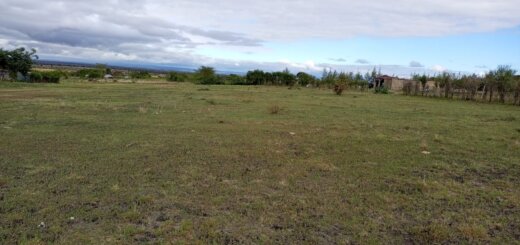The Role of Agro-Tourism in Kenya in Shaping Rural Real Estate Opportunities
Agro-tourism, a fusion of agriculture and tourism, is rapidly gaining traction across Kenya as a means of diversifying rural incomes and promoting sustainable development. This innovative concept offers visitors an authentic experience of rural farm life while contributing to the economic growth of local communities. Beyond its impact on agriculture and tourism, agro-tourism is opening up a world of opportunities in rural real estate.
In this article, we will explore the rise of agro-tourism in Kenya, its impact on rural real estate, and the immense opportunities it offers for investors, developers, and rural communities.
What Is Agro-Tourism?
Agro-tourism involves visitors traveling to rural areas to experience agricultural practices, learn about farm-to-table concepts, and enjoy the scenic beauty of the countryside. Activities range from farm tours, crop harvesting, and livestock interactions to sampling local cuisines and engaging in cultural experiences.
Kenya’s diverse landscapes, favorable climate, and agricultural heritage make it an ideal destination for agro-tourism. Popular regions like the Rift Valley, Mount Kenya, and the Lake Victoria Basin offer unique agro-tourism experiences.
The Growing Popularity of Agro-Tourism in Kenya
Several factors are driving the rise of agro-tourism in Kenya:
1. Shift Toward Experiential Travel
Travelers increasingly seek immersive experiences that connect them with nature and local cultures. Agro-tourism offers a unique blend of education, relaxation, and adventure.
2. Government Support for Agribusiness
The Kenyan government has prioritized agriculture as a pillar of its Big Four Agenda. Policies promoting agribusiness and rural development indirectly support the growth of agro-tourism.
3. Growing Demand for Organic Food and Farm Experiences
Urban residents are becoming more interested in knowing where their food comes from. Agro-tourism farms that focus on organic and sustainable practices attract this niche market.
4. Employment and Community Benefits
Agro-tourism generates jobs for rural communities, from farm guides and hospitality staff to artisans selling local crafts.
The Impact of Agro-Tourism on Rural Real Estate
Agro-tourism is transforming rural areas and creating a ripple effect in the real estate sector:
1. Increased Demand for Farm Properties
Investors are snapping up agricultural land to develop agro-tourism ventures, from working farms to eco-lodges.
- Diversified Farm Uses: Traditional farms are being repurposed into destinations that combine agriculture with tourism.
- Focus on Scenic Locations: Properties with views of hills, rivers, or wildlife attract more visitors, increasing their market value.
2. Boost in Infrastructure Development
Agro-tourism necessitates improved infrastructure, which enhances the value of surrounding properties:
- Road Access: Better roads to rural farms boost connectivity and make these areas more accessible.
- Utilities and Amenities: Investments in water, electricity, and sanitation infrastructure benefit local communities and future real estate projects.
3. Rise of Eco-Friendly and Sustainable Developments
Sustainability is at the heart of agro-tourism, influencing rural real estate design:
- Eco-Lodges and Farm Stays: Developers are incorporating green building practices, such as solar energy and rainwater harvesting.
- Blending with Nature: Properties are designed to complement the natural environment, preserving the aesthetic and ecological value of the land.
4. Increase in Land Prices
The growing demand for rural properties suited for agro-tourism has driven up land prices in regions with high potential, such as Naivasha, Nanyuki, and Kericho.
5. Urban-to-Rural Migration
Agro-tourism is attracting urban entrepreneurs and retirees who see opportunities in rural living and agribusiness. This trend is boosting demand for residential properties in rural areas.
Key Opportunities in Agro-Tourism for Real Estate Investors
Real estate developers and investors can capitalize on agro-tourism by exploring various opportunities:
1. Developing Farm Stays and Guesthouses
Farm stays provide visitors with accommodation on working farms, offering a blend of rustic charm and modern comfort.
- Target Markets: Urban families, educational groups, and international tourists are key audiences.
- Revenue Streams: Apart from accommodation, additional income can be generated through activities like farm tours, workshops, and dining experiences.
2. Creating Eco-Friendly Retreats
Eco-tourism and agro-tourism often overlap, creating demand for sustainable properties:
- Nature-Focused Developments: Build eco-friendly lodges, glamping sites, or retreats that promote sustainability and conservation.
- Off-Grid Living: Properties that offer off-grid solutions, like solar power and composting toilets, are increasingly popular.
3. Investing in Agri-Villages
Agri-villages are integrated developments combining residential, agricultural, and commercial spaces:
- Live-Work-Play Concept: Residents can live in a rural setting, work on farming activities, and enjoy communal amenities like farmers’ markets and recreational facilities.
- Community-Centric Design: Such projects promote community building and shared prosperity.
4. Land Banking in High-Potential Areas
Investors can buy land in regions with agro-tourism potential, hold it for appreciation, or develop it into agro-tourism destinations.
- Hotspots: Areas near national parks, tea plantations, and scenic lakes are particularly attractive.
5. Building Event Spaces on Farms
Agro-tourism farms can double as venues for weddings, corporate retreats, and cultural events, boosting their income potential.
Successful Agro-Tourism Destinations in Kenya
Several agro-tourism ventures in Kenya demonstrate the potential of this growing sector:
1. Brown’s Cheese Farm, Limuru
This family-run dairy farm offers tours, cheese-tasting experiences, and a glimpse into sustainable farming practices.
2. Kembu Cottages and Farm, Njoro
Located near Nakuru, Kembu combines farm life with charming cottages, attracting both domestic and international tourists.

Agro-Tourism in Kenya
3. Olepangi Farm, Nanyuki
Olepangi offers luxury farm stays, horse riding, and cultural interactions with the Samburu community.
4. Tea Plantations in Kericho
Kericho’s lush tea estates are not only a hub for tea production but also a destination for visitors seeking scenic views and insights into tea processing.
Challenges in Agro-Tourism and How to Overcome Them
1. Limited Awareness and Marketing
Many agro-tourism ventures struggle with visibility.
- Solution: Invest in digital marketing, social media, and partnerships with travel agencies to reach a wider audience.
2. Infrastructure Gaps
Rural areas often lack adequate infrastructure.
- Solution: Partner with local governments to improve roads, utilities, and public amenities.
3. Seasonal Nature of Tourism
Agro-tourism income can be seasonal, depending on weather and harvest cycles.
- Solution: Diversify activities and offer year-round attractions, such as workshops and cultural events.
4. Balancing Tourism and Agriculture
Farm productivity may be affected by tourism activities.
- Solution: Implement guidelines to ensure farming operations continue seamlessly alongside tourism activities.
Future Outlook for Agro-Tourism in Kenya
The agro-tourism sector in Kenya is poised for significant growth as awareness increases and demand for rural experiences rises. The government’s continued support for agribusiness, combined with technological advancements, will further enhance the sector’s appeal.
For real estate investors, agro-tourism presents a golden opportunity to create value while contributing to sustainable rural development. By tapping into this trend, developers can shape the future of Kenya’s rural real estate landscape.
Conclusion
Agro-tourism is not just transforming rural economies; it is reshaping Kenya’s real estate market by creating demand for innovative and sustainable developments. From eco-friendly farm stays to agri-villages, the opportunities are vast for those willing to invest in this growing sector.
By aligning with the principles of sustainability, community engagement, and experiential tourism, agro-tourism offers a win-win scenario for investors, rural communities, and travelers alike. As the trend continues to grow, it holds the potential to redefine rural living and unlock new opportunities in Kenya’s real estate sector.



